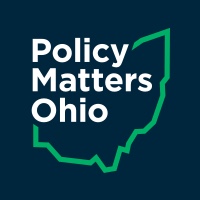Funding our future
The federal government is pouring cash into Ohio with the American Rescue Plan Act and the Bipartisan Infrastructure Law. Check out the videos below for a menu of options that policymakers and advocates can choose from — all of which include best practices for putting these funds to work for everyone.
When you're ready to dive deeper, read the accompanying briefs to learn more about these options, and to explore case studies of communities that have already put ARPA & BIL funding to work making Ohio more vibrant, sustainaible, equitable & inclusive!

The American Rescue Plan Act — an overview
Congress and the Biden administration recognized that the public health crisis and associated economic downturn “impacted” or “disproportionately impacted” low-income communities and communities of color, making a long list of services for these communities presumed eligible expenditures. Our overview defines key terms, identifies presumed eligible expenditures and provides resources for tracking ARPA funds.

The Bipartisan Infrastructure Law — an overview
The Bipartisan Infrastructure Law is a down payment on the nation’s climate infrastructure needs. More than $60 billion in federal funds will be awarded through competitive grants to cities, towns and municipalities for projects ranging from repairing damaged lands to reducing energy use, mitigating the risk of flooding from climate change, growing a more sustainable transportation system, modernizing our electric grid and making it smarter with broadband.

Participatory budgeting is a hands-on approach to democracy: Communities develop projects collaboratively, monitor their progress, and build on what they learn. Cleveland's PB CLE shows how it's done.

Workers need time to care for themselves and their family without risking their job and economic security. This is why Ohioans — and everyone — should have paid family and medical leave.

By properly funding wage and hour enforcement, Ohio lawmakers can make it harder for employers to commit wage theft, and easier for workers to be made whole.

Local policymakers can choose to help parents get back to work, help more families with low incomes afford child care, and ensure child care workers, particularly Black and brown women, are paid better wages and benefits.

Every frontline worker who took on the risks to go to work and deliver vital services should be paid a wage that covers the cost of living and recognizes the critical nature of their work.

Health and equity assessments can help decision-makers break down long-standing barriers to health that for low-income communities and people of color.

Funds from ARPA can help our leaders make Ohio’s juvenile justice system more humane and effective.

American Rescue Plan Act funds can support community-labor training partnerships and help secure Bipartisan Infrastructure Law resources.

ARPA dedicates $122 billion to support primary and secondary education, so schools can address learning loss, retool for new safety requirements and improve technology.

Using ARPA funds, lawmakers can break down barriers to health care and create sustainable and equitable connections between families and providers.

With funding from ARPA, communities can jumpstart a health-first approach to emergency response.
Photo Gallery
1 of 22
